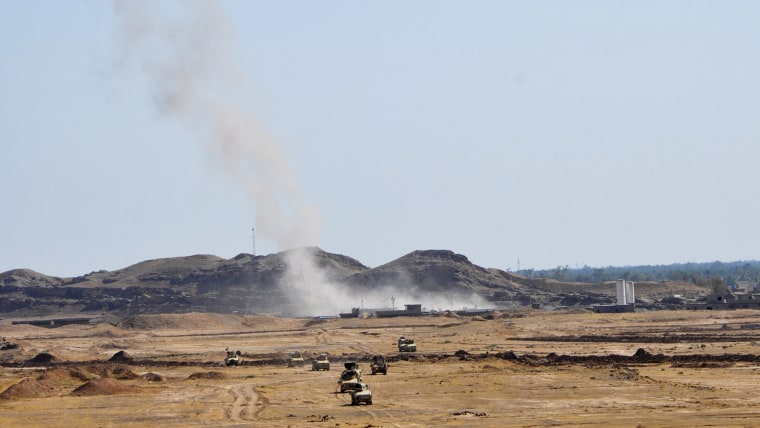Last night, former Bush/Cheney press secretary Ari Fleischer was in high dudgeon, condemning the White House for withdrawing U.S. troops from Iraq and ending one of the longest wars in American history.
"[President Obama] has created vacuums all around the world because of what you just said. He's not wanted to exercise American leadership. And time and again it's turned out worse for America's national security. [...] "The president was so willing just to wipe his hands and say, 'I end wars, I don't start wars, I'm withdrawing everybody.' He wanted to get to a position where Iraq said we won't take what you're offering."
As a substantive matter, all of this is just bizarre. To argue that "exercising American leadership" is synonymous with "indefinite wars" is absurd. To believe Iraqi officials were "offering" to keep U.S. troops in the country is simply at odds with reality.
But there's also a big-picture problem. When Obama actually ended the war and brought troops home, Fleischer was delighted, calling the president's move the "right" call. The "Iraq war is over," the Republican said. In reference to withdrawal, Fleischer added, "It's time."
Of course, the point is not to pick on Ari Fleischer's frequent contradictions, which are too common to be interesting. Rather, the significance of this is how common the Beltway reversals have become. Many of the exact same people who argued before, "It's great that the troops are coming home!" are now complaining, "I can't believe Obama brought the troops home."
In 2010, for example, Sen. John McCain (R-Ariz.) argued, "Last American combat troops leave Iraq. I think President George W. Bush deserves some credit for victory." Four years later, McCain is outraged that American combat troops left Iraq and wants to blame President Obama for Iraqi violence.
And let's not forget former Defense Secretary Leon Panetta, who decided to drop a new book during the election season and spend a few weeks condemning the Obama administration's national security strategy.
As we discussed yesterday, the former Pentagon chief last week wrote a piece blaming Obama’s withdrawal of U.S. troops from Iraq for the chaos gripping much of the country. And yet, it was none other than Leon Panetta who defended Obama’s withdrawal policy, repeatedly, before he was trying to boost book sales.
Panetta now says he believes Obama should have pressed Iraqi officials to keep thousands of U.S. troops in Iraq indefinitely. What would those troops have accomplished that they didn’t already try over the last decade? Panetta hasn’t really said. What was Obama supposed to do about the fact that Iraq wanted American servicemen and women out? Panetta hasn’t really explained that, either. Why did Panetta see a residual force as impossible in 2011, only to believe the opposite now? He hasn’t offered an explanation of this, either.
And yet, Panetta just keeps complaining.
It's quite a transition for all of them, isn't it? When Obama ended the war, his policy was sensible, popular, and as it turns out, necessary in light of Iraqi officials telling us to leave their country. But conditions in Iraq have deteriorated, much of the public sees this as the result of an ineffective U.S. foreign policy, and so the White House's detractors are scrambling to take advantage of the opportunity -- even if it means contradicting what they said before.
I'm reminded once again of this amazing quote from Rep. Jack Kingston (R-Ga.), who recently reflected on why Congress doesn't want to bother authorizing military force against Islamic State militants.
"A lot of people would like to stay on the sideline and say, 'Just bomb the place and tell us about it later,'" he said. "It's an election year. A lot of Democrats don't know how it would play in their party, and Republicans don't want to change anything. We like the path we're on now. We can denounce it if it goes bad, and praise it if it goes well and ask what took him so long."
In context, Kingston was talking cynically about ISIS, but it's a quote with broad applicability. If Iraq looks great after withdrawal, let's credit Bush. If Iraq looks chaotic after withdrawal, let's blame Obama, whether it makes sense or not.
